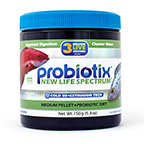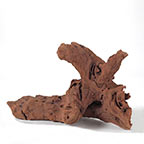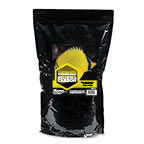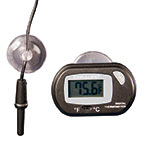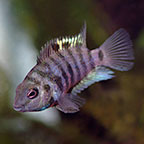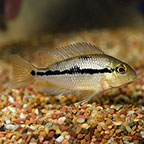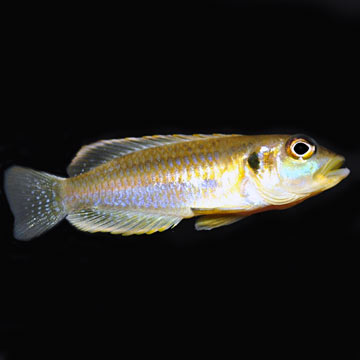
Additional locales and sizes may be available!
Additional locales and sizes may be available! Email me when availableQuick Stats
What do these Quick Stats mean? Click here for more information
What do these Quick Stats mean? Click here for more information
Overview
The Gold Lamprologus Ocellatus Cichlid should be maintained in an aquarium of at least 30 gallons with other smaller Tanganyikan cichlids. Incorporate plenty of rocks, shells and African driftwood in order to build caves. Provide a sandy bottom of aragonite to maintain the necessary high pH and alkalinity.
The Gold Lamprologus Ocellatus Cichlid is a shell spawner, and breeding is more difficult than most of the cichlids. This is a very slow growing species which may take a few years to reach sexual maturity. At that time, the males are typically larger than the females. Provide plenty empty shells for the female to lay their eggs. Incubation occurs in 3 to 4 days. To increase their survival rates, relocate the young to a separate aquarium after hatching. Feed the fry newly hatched brine shrimp and finely crushed flake food.
Their diet should contain meaty items such as blood worms, brine and mysis shrimp, carnivore flake and pellet foods.
Approximate Purchase Size: 1" to 1-3/4"




